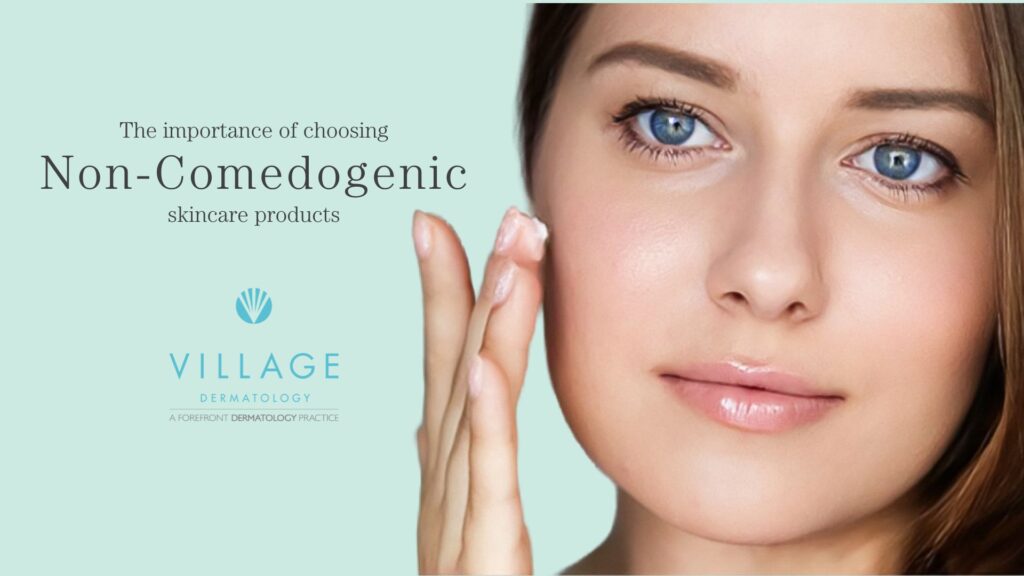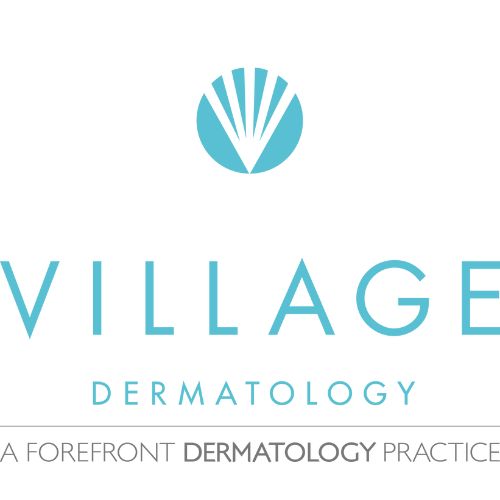The Importance of Choosing Non-Comedogenic Skincare Products

Acne breakouts are common, especially between the ages of 11 and 30. Dermatologists say 4 out of 5 people experience acne during their teenage and young adult years. This common skin condition can cause considerable discomfort and embarrassment. Effective acne treatments are available. But if you have acne-prone skin, you must be careful about what you put on your face.
Many common ingredients in skincare and cosmetics can cause clogged pores and worsen your acne. On the other hand, certain ingredients can help to prevent pore blockages and acne.
When choosing skincare products for acne-prone skin, one word you should become familiar with is non-comedogenic.
Please continue reading to find out what this word means, which skincare ingredients are non-comedogenic, and why products with these ingredients are important for acne-prone individuals.
What does non-comedogenic mean?
The medical definition of a non-comedogenic ingredient is an ingredient that will not block the pores in the skin. Pores are tiny openings in the skin’s surface through which the skin releases oil and sweat.
Clogged pores are a common cause of acne. The buildup of dirt, oil, and dead skin cells can lead to clogged pores in the skin. People with oily skin are more likely to have clogged pores. Using non-comedogenic skincare products can help to prevent clogged pores and reduce or eliminate acne breakouts.
What are some non-comedogenic ingredients in skincare products?
Ingredients that are non-comedogenic and beneficial for acne-prone skin include:
- Salicylic acid
- Benzoyl peroxide
- Resorcinol
- Sulfur
These non-comedogenic ingredients exfoliate the skin and/or reduce the number of bacteria on the skin’s surface. They can help in reducing the severity and frequency of acne breakouts.
Additionally, certain non-comedogenic oils hydrate and moisturize the skin without blocking pores. These include:
- Sunflower oil
- Grapeseed oil
- Hempseed oil
- Neem oil
- Sweet almond oil
- Shea Butter
- Coconut Oil
If you have acne-prone skin, it’s a good idea to look for these ingredients in your skincare products. Many skincare products are labeled “non-comedogenic” to save you the trouble of checking the ingredients individually.
How can you tell if a skincare product is non-comedogenic?
Many skincare products are labeled “non-comedogenic” or “non-oily.” So you can check the package and choose accordingly.
Unfortunately, the U.S. Food and Drug Administration (FDA) does not regulate over-the-counter skincare products and cosmetics. Therefore, there is no way to know if a product is truly non-comedogenic. Also, there is no standardized method of measuring the comedogenic potential of a product, which further makes it difficult to find a great anti-acne skincare product.
A good rule of thumb is to choose anti-acne skincare products highly rated by medical professionals. Your dermatologist can also help you choose tried and tested non-comedogenic skincare products.
I have acne-prone skin. Which skincare ingredients should I avoid?
The list of ingredients that can cause breakouts in acne-prone individuals is a long one. Some common offenders include:
- Isopropyl myristate
- Isopropyl palmitate
- Isopropyl isostearate
- Isostearyl neopentanoate
- Butyl stearate
- Octyl palmitate
- Octyl stearate
- Decyl oleate
- Myristyle myristate
- Isocetyl stearate
- PPG-2 (propylene glycol-2)
- D&C red dyes
- Lanolins
It can be tedious to go through all the ingredients in your skincare products. Instead, if you have a bad breakout after using a particular product, check the ingredient list and note any known offenders. This way, you can avoid the same ingredients in the future.
What else should I do to prevent acne?
Here are some habits that can make acne worse. You should avoid the following:
- Using comedogenic skincare products.
- Trying too many new acne treatments over a short period of time.
- Sharing makeup or makeup applicators with others.
- Sleeping with makeup on.
- Washing your face more than twice a day.
- Using drying ingredients like alcohol or astringents which irritate the skin.
- Scrubbing your skin clean.
- Rubbing sweat from your skin with a towel after working out.
- Popping or squeezing your pimples.
Dermatologists recommend that you choose non-comedogenic skincare products formulated for acne-prone skin. Give each product 6-8 weeks to work before switching to another product.
It’s worth noting that clogged pores are only one of the causes of acne. Other factors like hormonal changes, stress, diet, and side effects of certain medications can also cause breakouts.
If you have severe acne breakouts, you should consult a dermatologist. It’s also time to see a dermatologist if you feel unhappy or uncomfortable in social situations because of your acne.

